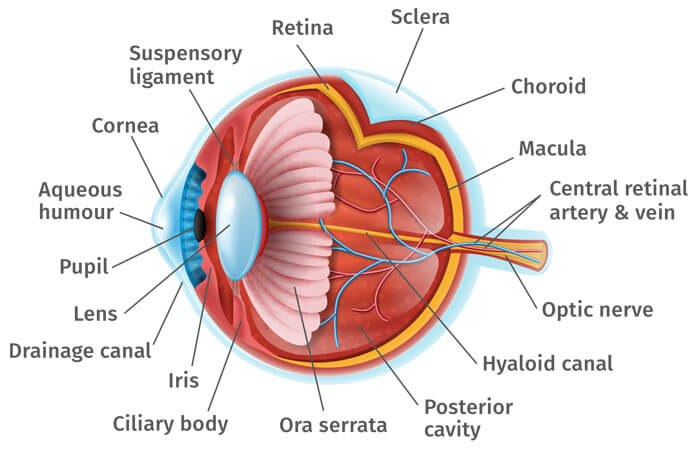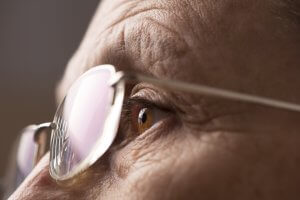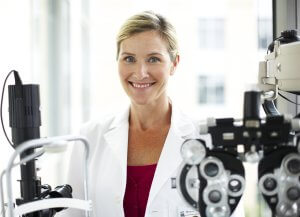Learn more about low vision services
What is low vision? Low vision treatment options and more!

At a Glance:
Things to know and remember:
- Low vision is a vision problem that makes it hard to do everyday activities like reading, watching television or driving.
- Low vision is more common in older adults because many of the diseases that can cause it are more common in older adults. Aging doesn’t cause low vision on its own. Eye and brain injuries and certain genetic disorders can also cause low vision.
- Low vision is usually permanent. It can’t be fixed with glasses, contact lenses, or other standard treatments like medicine or surgery.
- Vision Rehabilitation is usually the treatment of necessity. A low vision specialist can help you learn how to live with your vision loss. This can include things like magnifying devices for reading, better lighting in your home, setting up your home so you can move around easily, and community resources for low vision persons.
About Low Vision
What is a low vision?
Low vision means that even with regular glasses, contact lenses, medicine, or surgery, people find everyday tasks difficult to do. When you have low vision, eyeglasses, contact lenses, medicine, or surgery may not help. Activities like reading the mail or a newspaper, working on a computer, shopping, cooking, writing, and watching TV may be hard to do.
Millions of Americans lose some of their sight every year. While vision loss can affect anyone at any age, low vision is most common for those over age 65.
Low vision is usually caused by eye diseases or health conditions. Some of these include age-related macular degeneration (AMD), cataract, diabetes, and glaucoma. Eye injuries and birth defects are some other causes. Whatever the cause, lost vision cannot be restored. It can, however, be managed with proper treatment and vision rehabilitation.
Coping with low vision can be overwhelming and emotionally difficult. However, with time and effort – and the support of the low vision experts at Eye Consultants of Pennsylvania, you can adapt to low vision. In fact, many people who are visually impaired can learn to perform everyday functions and even enjoy hobbies again.
Rehabilitation and Coping Options
Can low vision be cured?
No. There is no cure for low vision, and vision lost cannot be restored. But there are a variety of rehabilitative coping tools. People with low vision can regain or maintain their independence and quality of life through low vision services. Your low vision specialist can explain the available options to you.
Attribution
Source: Eye Consultants of Pennsylvania and The National Eye Institute
Does my insurance plan
cover my eye care?
Find out what insurance we accept and what is covered by insurance.
Learn more about our low vision specialists
Physician information including education, training, practice location and more.
Schedule an Appointment
Schedule an appointment with one of our specialists.





